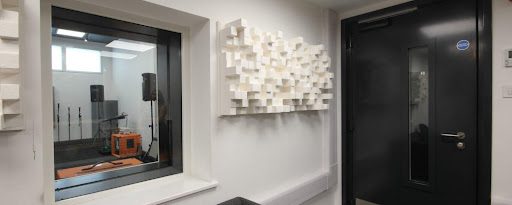Acoustic enclosures are waterproof, so they keep the equipment safe from the elements including water, dust, fire, and rats. The enclosure can be placed anywhere in the open, avoiding the expense of building a civil room. In reality, Noise Control devices can be installed around any equipment to reduce noise to acceptable decibel levels. The acoustic enclosure lowers noise and complies with ISO 14001 environmental standards.
It also prevents excessive loudness and its negative consequences. Various noise control strategies are available in this area. Sound absorption, isolation, vibration dampening, and avoiding resonance in structures and machine parts can all help to reduce noise. For many organizations, reducing noise pollution from gas turbines is a top concern. The noise from the atmospheric inlet and exhaust openings of gas turbines must have the necessary noise control systems in place to guarantee that the facility meets the applicable noise requirement.
The most important structures used to prevent noise radiation from a source to an outside area are acoustic enclosures. Acoustic enclosures assist local governments comply with federal noise regulations by reducing these issues. The most popular sort of acoustic wall panels is a set of noise-canceling or decreasing panels that aid commercial and industrial businesses in adhering to local and national noise restrictions.
Acoustic enclosures give multiple benefits
Heavy materials such as sheet metal, wood, brick, plasterboard, glass, and loaded vinyl can be used in double-leaf acoustic enclosures to stop comparatively substantial amounts of sound. Perforated sheet metal, perforated foil, or perforated vinyl are common sound absorption materials with a protective face. Noise from a noise source is not radiated to the exterior with acoustic enclosures. Other acoustic enclosures are made to reduce noise at frequencies that could disrupt vital measurements or high-precision manufacturing operations. When an acoustically sensitive instrument is exposed to a natural frequency, the system oscillates, potentially affecting the equipment’s measurements.
What Are Acoustic Generators and How Do They Work?
Acoustic generators are essentially acoustic chambers that control or reduce noise generated by heavy machinery. These are well-designed to reduce noise to tolerable decibel levels. The acoustic material in soundproof acoustic enclosures provides sound absorption and insulation tasks.
There are two sources of generator noise.
Mechanical noise is produced by the mechanical vibration of the machine’s various moving components and sections. Smaller engines produce more vibration and noise for their size because they have fewer cylinders. Engine noise is caused by combustion. It could include engine noise such as cooling fan noise, exhaust noise, alternator noise, and induction noise caused by combustion.
Acoustic windows
When a high noise-free atmosphere is required, extremely thick acoustic glass doors and windows are appropriate. They’re common in recording studios when high-quality noise suppression is necessary. Acoustic double glass windows lower sound by up to 40 decibels, reducing the loud 80 decibels of road traffic to a calm 40 decibels – the same decibel level as someone chatting in a library. The soundproof glass we employ is essentially laminated, with a PVB interlayer that provides great sound absorption. Acoustic glass decreases noise by up to 90% when compared to standard 5mm glass. Acoustic glass is a type of glass that significantly reduces noise levels. It does so because of the way it is built, which includes laminated glass, two panes of glass, and a bonded interior layer to absorb sound and vibration.
A wide range of health advantages
The temperature inside the house or business is kept at ideal levels via acoustic glass windows and shaker style doors. One of the most significant advantages of soundproof glass doors and windows is their energy efficiency. Because the temperature of the rooms would not fluctuate as much, the efficiency of the various equipment employed in the facility would improve. Acoustic glass does not obstruct natural light, but it does block or reflect the harmful UltraViolet and Infrared rays, improving the general health of the occupants.
Sound levels are optimized
Acoustic glazing is effective in significantly reducing noise, hence reducing discomfort for the driver and passengers. Smart acoustic glass is useful in dampening noise to the point that it does not bother the passenger, while yet allowing external noises like horns and sirens to be heard, keeping the driver aware of his surroundings.
Enhances Thermal Comfort
Acoustic windows and doors effectively insulate your property. During the summer, they keep interiors cool by avoiding allowing cool conditioned air to seep out. During the winter, when it is freezing outside, these windows prevent warm air from escaping from your house or business, keeping it comfortable. Acoustic glass is also energy efficient as a result of this. Because the interior temperatures never fluctuate between extremes, your heating and cooling systems become more efficient as well.
Help keep news FREE for our readers
Supporting your local community newspaper/online news outlet is crucial now more than ever. If you believe in independent journalism, then consider making a valuable contribution by making a one-time or monthly donation. We operate in rural areas where providing unbiased news can be challenging. Read More About Supporting The West Wales Chronicle
























